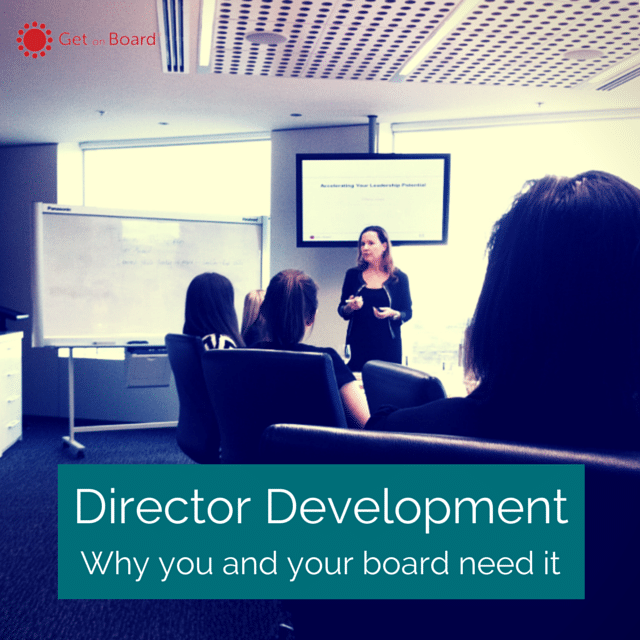Director Learning and Development: why you and your board need it

Continuous formal learning, training, development, and education are vital activities that all directors of a company should undertake. Best-practice boards ensure minimum levels of director development are written into their board charter, director agreements and position descriptions, and that each board member is kept accountable to ensure they complete their required director development quota each year.
Why is it so important?
Ongoing formal director and board development is crucial for a number of reasons.
Firstly, it is good risk management for the company and for individual board members. Directors have many legal requirements placed on them, and changes and precedents in the legislative landscape are occurring all the time. Add into that changes and innovations in the way business is done and boards are run, a commitment to continuous education ensures directors are up-to-date and don’t miss vital information. This significantly reduces and manages the company’s risks. A number of boards I sit on have a specific director development policy as part of their risk management strategies.
Following closely to the above points, investment into director education and development is an investment into the organisation. Much like it is when organisations invest into up-skilling employees. Boards should ensure that adequate budget is allocated – and spent! – on director development each year.
Providing board members with the ability to undertake training and development can be viewed as a significant value-add for directors; particularly to those who are volunteer directors. Organisations with volunteer directors can either fully or partially fund the directors’ education. Furthermore, organisations can help their volunteer board members find and apply for grants to undertake specific or particular types of director development programs.
Having directors attend formal programs run by a mix of organisations increases board members’ networks. This is beneficial for the organisation as directors can call on a wide range of people for times when specific assistance or advice may be needed, when looking for future board or committee members, and in building awareness of the organisation and its purpose.
And last, but not least, director education and development builds confidence. Confidence to ask the right questions, to seek out the right information, to challenge, to drive a vision and view point, to affect necessary changes, and hold people accountable. Knowledge is confidence, and a confident director is an effective director.
Although this post focused on formal director and board education, training, and development, informal education is just as important for directors to stay on top of their game. Technology and the abundance of information available online makes this dead-easy. Check out this post about how to stay informally informed as a director.
